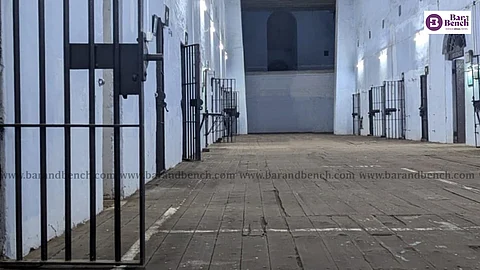
- Latest Legal News
- News
- Dealstreet
- Viewpoint
- Columns
- Interviews
- Law School
- Legal Jobs
- हिंदी
- ಕನ್ನಡ

Two recent judgments have once again brought the issue of wrongful prosecution to the fore.
The Bombay High Court in State of Maharashtra v. Kamal Ansari (2025) set aside a lower court judgment convicting 11 persons in the Mumbai Bomb Blasts case citing a comprehensive failure on part of the prosecution to prove their case. The accused spent more than 17 years in prison before a successful appeal. The Supreme Court in Kattavellai Devakar v. State Of Tamil Nadu (2025) highlighted the need to compensate those who have been wrongfully incarcerated for extended periods and observed the lack of any statutory requirements for the same.
This observation by the Supreme Court is pithy and raises substantial concerns, and any statutory mechanism aimed at tackling wrongful prosecution must address several key concerns.
The discourse on wrongful prosecution in India witnessed its genesis in the Delhi High Court judgment in Babloo Chauhan v. State NCT of Delhi (2017) wherein the lead author of this piece, acting as Amicus Curiae, recommended the institutionalisation of a comprehensive assistance and compensation scheme for victims of wrongful prosecution. Taking note of the recommendations, the Court tasked the Law Commission of India to undertake a study on the issue, resulting in its 277th Report on Wrongful Prosecution (Miscarriage of Justice): Legal Remedies.
As the Supreme Court noted in Kattavellai (2025), however, the understanding of the Law Commission was limited to malicious prosecution or prosecution initiated without good faith and, therefore, did not cover the situation sought to be rectified by the discourse on wrongful prosecution.
A recent study undertaken by National Law University, Delhi in collaboration with West Bengal National University of Juridical Sciences conducted a qualitative assessment of more than 120 Supreme Court and High Court judgments to demarcate the nature and causes of wrongful prosecution, as well as the roles of the functionaries of our criminal justice system in perpetuating the same. The study reveals that wrongful prosecution occurs at every stage in our criminal justice process, right from registration of FIRs to sentencing and appeals, for a variety of reasons ranging from malice to non-application of mind by the functionaries.
The study also found that the impact of wrongful prosecution on its victims is multi-faceted. Understanding this is essential for the development of a compensatory framework.
First, the psychological impact of wrongful prosecution is dictated by a desire for an official acknowledgement of error as well as compensation, both of which are exceptions in our criminal justice system. The psychological impact also manifests in the form of post-traumatic stress disorder (PTSD), anxiety, depression, isolation and sleeplessness resulting both from the experience of wrongful prosecution as well as the sub-standard living conditions and treatment experienced as prisoners. A basic aspect of the psychological impact emerges in the form of their daily experiences post-release. As they set about rebuilding their life, identity and relationships, the victims face problems in the simplest of tasks such as eating, sleeping, walking, shopping or dressing. The victims have to overcome stigma attached to their prosecution. They are also confronted by the humiliation and discomfort of being disconnected from society and technological advancements.
Second, research shows that wrongful prosecution resulting in prolonged incarceration reduces life expectancy for more than two years for each year of incarceration owing to negative health concerns such as contraction of chronic and/or infectious diseases, increased body mass index, etc.
Third, wrongful prosecution also has a significant financial impact associated with loss of employment, legal expenses and court fees, leading to increased dependency on family, friends and neighbours. The financial impact is not limited to the victim, but also extends to the victims’ families, especially where the victim is the sole earner.
Fourth, overcoming the financial impact is an uphill battle post-release. Wrongful prosecution often negatively impacts victims’ employment prospects. Even where the employer may not be aware of the victim’s past initially, a simple Google search-based background check conducted by employers may work against the victim in as much as court records, media reports, or public databases may carry their name in unfavourable contexts. This concern ties inextricably with the debate on the right to be forgotten.
The Supreme Court’s remarks in Kattavellai (2025) regarding the need to compensate victims of wrongful prosecution are welcome. Nevertheless, while the judicial recognition of such a need has been forthcoming in this and earlier judicial decisions, the actual grant of compensation has been erratic. For instance, even as the Supreme Court granted compensation to S Nambi Narayanan for his wrongful prosecution, the Court refused to intervene in the case of Adambhai Sulemanbhai Ajmeri v. State of Gujarat (2016) where the prosecution’s case was based on fabricated evidence and extorted confessions. A legislative framework for compensating the wrongfully prosecuted would undoubtedly ensure uniformity in application.
Compensation is only one measure from a host of others that require institutionalisation. The first step is the formal acknowledgement of systemic failure resulting in wrongful prosecution. This step is crucial for restoring the faith of the victim as well as society in the justice system. Remedying wrongful prosecution also necessitates the provision of comprehensive assistance to victims, including but not limited to support in rehabilitation and societal reintegration, healthcare and mental health services, employment support, housing support and legal support for accessing all the above.
The institutional framework must also work actively towards the prevention of wrongful prosecution. Once the systemic failure contributing to wrongful prosecution is formally acknowledged, steps must be taken to affix accountability through departmental inquiries and/or formal judicial processes, thereby ensuring responsible exercise of powers and execution of duties by the functionaries of the justice system.
GS Bajpai is Vice Chancellor at National Law University, Delhi.
Ankit Kaushik is an Assistant Professor at NLUD.